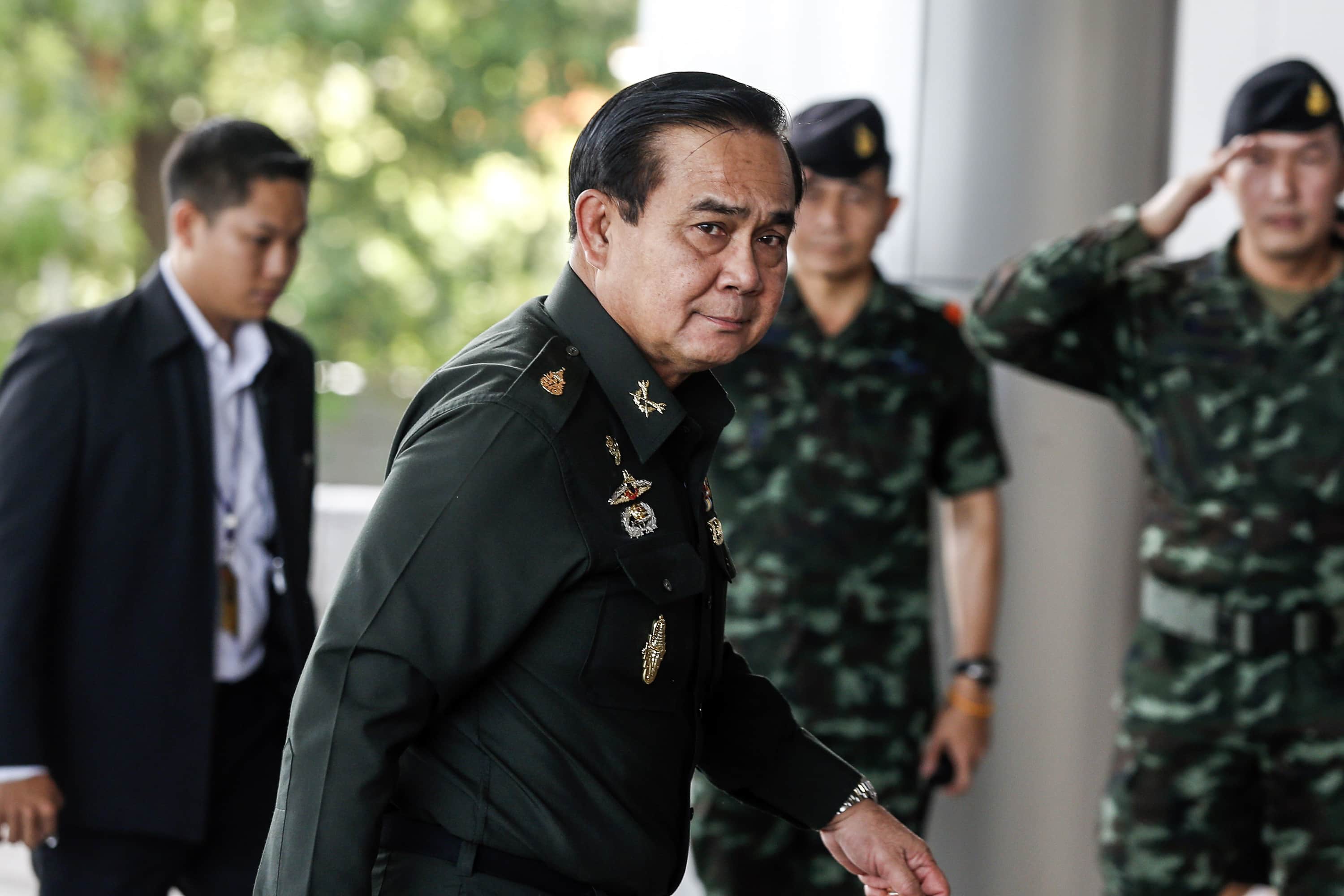On 25 March 2015, Thai military junta leader Prayuth Chan-ocha made disturbing comments against journalists unwilling to adhere to the official line, saying, "We'll probably execute them."
This statement was originally published on ifj.org on 26 March 2015.
The International Federation of Journalists (IFJ) and the National Union of Journalists, Thailand (NUJT) deplore the comments made by Thai military junta leader Prayuth Chan-ocha against journalists on Wednesday, March 25. The IFJ and NUJT condemn the comments as a threat to press freedom in Thailand, noting that the comments illustrate the continued decline of press freedom in Thailand over the past 12 months.
Yesterday [25 March], when Prayuth was asked by a journalist how the military junta would deal with those that do not adhere to the official line, and he responded, saying “We’ll probably just execute them”. The junta leader followed his statement saying that “You don’t have to support the government, but you should report the truth.” He argued that journalists should write in a way that bolsters national reconciliation in the kingdom.
The comments by Prayuth follow on from a string of media violations since he took power of the country after the military coup in May 2014. In the days following the declaration of martial law on May 20, 2014, several journalists were detained while 100 websites, 15 television stations and numerous radio stations were blocked, under the guise of “preserving peace and order”. Media outlets that had not been shut down had their premises “guarded” by armed soliders. In the latter half of 2014, the military junta introduced order 103 and order 97. The orders prohibited any form of criticism towards the military junta’s National Council for Peace and Order (NCPO) and prohibited criticism towards military authorities respectively.
The most recent comments by Prayuth come just a month after he told reporters that he had the power to shuft down news outlets. In January this year, the NCPO exercised its power over the media, cancelling a media forum organized by German foundation, Friedrich-Ebert-Stiftung (FES). Also in January the military junta proposed 10 internet related bills that could be used against freedom of expression and violate the right to privacy in Thailand.
Sumeth Somkanae, President of the NUJT said: “The comments by Prayuth is just the latest outburst aimed directly at the news agencies and journalists. The NUJT continues their support of press freedom in Thailand and encourages journalists to continue their work in providing independent, ethical journalism and playing a positive role in building a functioning democracy”.
The IFJ acting director, Jane Worthington said: “The comments made by the Thai military leader are deplorable and highlight the complete disregard for freedom of expression in Thailand. Journalists in Thailand have faced repeated challenges in the past 12 months under martial law and these comments come as another blow to their safety and press freedom.”
“The IFJ is gravely concerned by the on-going and repeated attempts by the NCPO to threaten, intimidate, silence and censor the media under the guise of peace and order. By these actions, the military is not only crippling the democratic process by silencing and intimidating the media, it is also restricting the ability of media outlets to report news in the public interest and for journalists to do their duty.”



